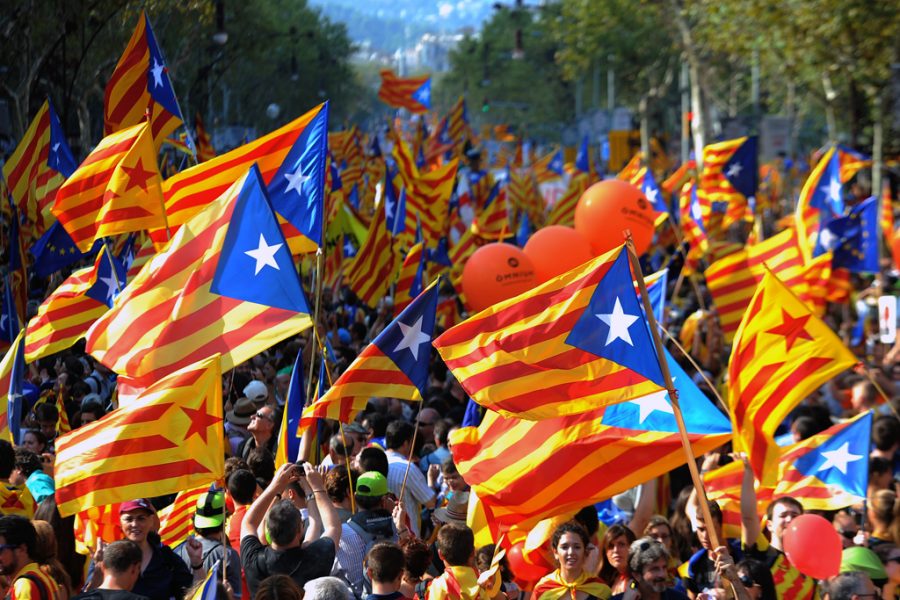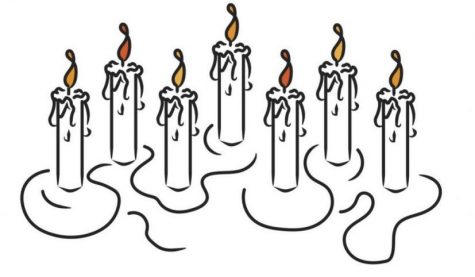The Catalonia climate
Catalonia is a term heard appearing throughout the news lately but has not been covered much in America. Buried under stories about the presidential Twitter account lies a massive political battle happening abroad. Across the Atlantic, a borderline revolution stirs in eastern Spain.
At it’s foundation, Catalonia is a subset of Spain similar to the U.S. equivalent to a state. The main difference between them is that that each Spanish community has its own distinct culture and sometimes even different languages. Catalonia is one of those autonomous communities and perhaps one of the most influential ones. They have their own language, culture and most prominently their strong nationalism which now holds them in a position to completely break away from Spain.
Spain’s government is very keen on keeping Catalonia in their domain due to the onsight of a slippery slope that could eventually end in the death of their whole county. Spain would be losing one of their largest economic regions but the inspiration of secession to other communities poses a present threat as well which could disintegrate Spain. There are plenty of historical reasons why Catalans are not too cozy with Spain, but their main gripe is with money. The issue is quite simple; Catalonia is one of the largest spenders in the Spanish economy, according to BBC news, yet the Catalan government feels as if it has been short-sided. Catalans complain about the lack of visible positive change in forms of infrastructure and living conditions in their communities despite giving their central government massive amounts of money. The small Catalan government has created several non-binding referendums for independence, the first in 2009 but they were just that: meaningless.
Then came the day when Catalonia was scheduled to have a legal vote for independence: October 2017 . Hearing of this, the Spanish government declared the referendum illegal, but the Catalan government did it anyway. Any violence ensued on voters in Barcelona was Spain’s reaction to the referendum. On the day of the referendum, Spanish police were sent to enforce the ban on voting throughout the streets of Barcelona, the capital city of Catalonia.
In a position where a community was voting for independence from the very government violently telling them not to, the referendum voted in favor. The whole Catalan population is not in support for independence however. Voter turnout was very low, plus most who were opposed to independent Catalonia boycotted the vote altogether. With a 90 percent vote for independence, Catalonia was ready to rise up as a new country while Spain grants them their sovereignty. But they did not. Spain declared the illegal referendum non-official and that it was a time for unity in the climate of sectionalism.
Things have mostly gone downhill for Catalonia since the referendum. Spain offered an ultimatum which told Catalonia they needed stop their independence movement or else they were going to be seized by Spain. Catalonia did not back down, and the Spanish government took control of Catalonia one hour after they declared independence. The creation of a declaration and its immediate suspension by Carles Puigdemont, the president of Catalonia who made it did not help either. Puigdemont, is the president of Catalonia who fled from his own newly declared “country” to Belgium to avoid Spanish arrest.
As of now, Catalonia’s president remains absent and members of its government continue to be arrested. Currently Catalonia is not recognized as a country, and it appears Spain has the upper hand. Most likely this issue will become a somewhat small blip in Spanish history but it just might become the factor that puts them in their grave.
Your donation will support the student journalists of Kirkwood High School. Your contribution will allow us to purchase equipment and cover our annual website hosting costs.






